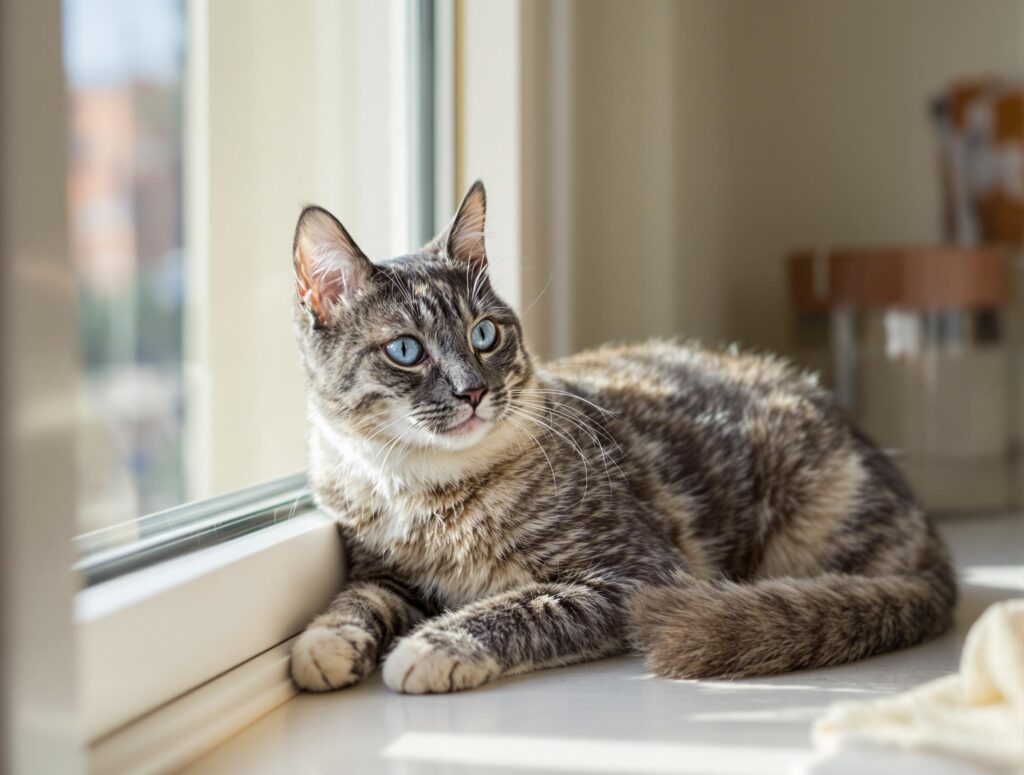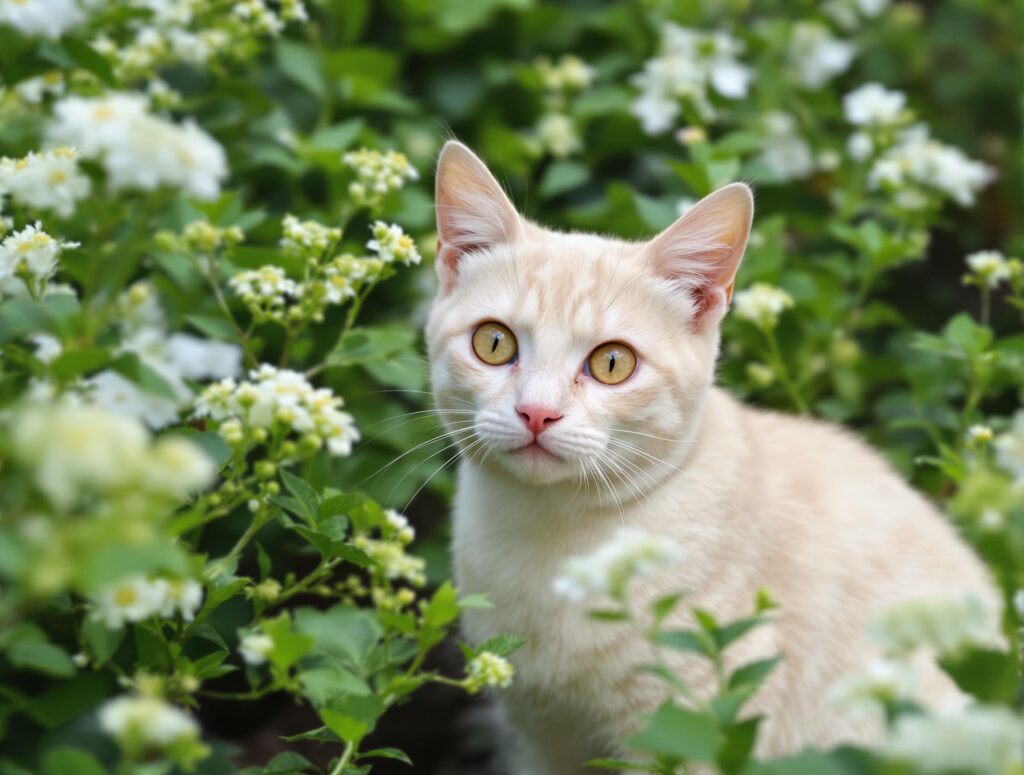Key takeaways:
- Even indoor cats are at risk for fleas, so comprehensive year-round prevention is crucial.
- Natural remedies can support flea control but are most effective when combined with veterinary-approved treatments.
- Flea infestations can escalate quickly, requiring a multifaceted approach to break the lifecycle.
- Always consult your veterinarian for the best treatment for your cat.
If you’ve ever noticed a flea on your cat and thought, “It’s just one, no big deal,” it’s worth taking a closer look. These tiny parasites are master survivors with impressive hiding skills. Without proper prevention, they may become a bigger issue for your cat and home.
At PetHealthMD, we know flea problems are often misunderstood. That’s why we’re debunking common myths and sharing what works to keep your cat flea-free.
Understanding Flea Infestations in Cats
The truth about flea infestations often surprises even experienced cat owners. A single female flea can lay up to 50 eggs daily, explaining how quickly a small problem can become an infestation. Beyond the scratching and discomfort, fleas can cause infections, allergic reactions, and even transmit tapeworms and bacteria to cats and humans.
Kittens and senior cats are particularly vulnerable, as even moderate infestations can cause anemia. Understanding these risks helps explain why many common flea myths fall short of protecting cats.
Myth 1: Indoor Cats Can’t Get Fleas

Among the most common flea myths is that indoor pets are safe. Fleas can enter your home through clothing, visiting pets, or even wildlife that slips inside. They thrive in warm environments like carpets, furniture, and bedding—making your home ideal for them to multiply.
Professional flea prevention is essential for protecting indoor cats, as cleaning alone often isn’t enough. If you’re considering prevention options, consult your vet to customize a routine suited to your cat.
Explore flea & tick prevention products for cats to keep your cat protected year-round.
Myth 2: Flea Treatments Are Only Necessary in Summer
While fleas are sensitive to cold, they can survive indoors through winter. Your home’s warmth allows them to breed all year. Year-round prevention saves money and avoids the stress of full infestations.
Check your cat’s fur and bedding monthly and protect all household pets with synchronized treatments.
Myth 3: Natural Remedies Replace All Flea Treatments

While natural options like vinegar or diatomaceous earth might offer temporary relief, they rarely eliminate infestations. Natural methods often miss eggs and larvae, and some essential oils can be toxic to cats.
The most effective approach combines vet-approved treatments with environmental management. Always check with your veterinarian before using any new method.
Myth 4: Cats’ Grooming Eliminates the Need for Treatment

Cats are clean animals, but grooming can’t remove flea eggs and larvae from your home. Overgrooming can lead to hair loss, skin infections, and even tapeworms if fleas are ingested. If you notice excessive grooming, it’s a sign to check for fleas and consult your vet.
Myth 5: Fleas Aren’t Harmful to Cats
Fleas can cause allergies, anemia, and tapeworm infections. Symptoms like pale gums, weakness, or persistent itching require immediate veterinary attention. The best prevention is consistent use of vet-approved flea treatments for cats.
Myth 6: Seeing Fleas on Your Cat Is Easy
Fleas are small and move fast, making them easy to miss. Look for dark specks (flea dirt) on your cat’s skin and bedding. Use a flea comb weekly to detect signs early.
Myth 7: Flea Collars Are Enough for Prevention
Flea collars can help, but they aren’t a complete solution. Effective flea control addresses both your pet and environment. Combine vet-approved products with regular cleaning and grooming.
Myth 8: A Single Treatment Can End the Flea Problem

Flea infestations require persistence. Hidden eggs and larvae can hatch weeks after initial treatment, so consistent applications for at least three months are key. Use flea products approved by your veterinarian to ensure safety and effectiveness.
Frequently Asked Questions About Fleas
Are kittens more sensitive to flea issues than adult cats?
Yes. Kittens have smaller bodies and developing immune systems, making them highly sensitive to flea infestations. Even a few fleas can be dangerous.
Are prescription flea medications safer than over-the-counter options?
Prescription medications are tested for safety and dosage accuracy. PetMeds offers trusted, vet-approved flea prevention solutions.
Can I combine different flea prevention methods safely?
A multi-pronged approach can work well when guided by a veterinarian. Combining oral or topical treatments with environmental cleaning offers the best results.
Do fleas become immune to treatments?
Some resistance may occur, but your vet can help rotate products to maintain effectiveness.
What should I do if my cat reacts to flea treatment?
Stop use immediately and contact your vet if your cat shows signs like itching, lethargy, vomiting, or appetite loss.
Looking to learn more about pet care? Visit1800petmeds.com for expert-backed information and vet-approved solutions to keep your cat healthy and happy year-round.




